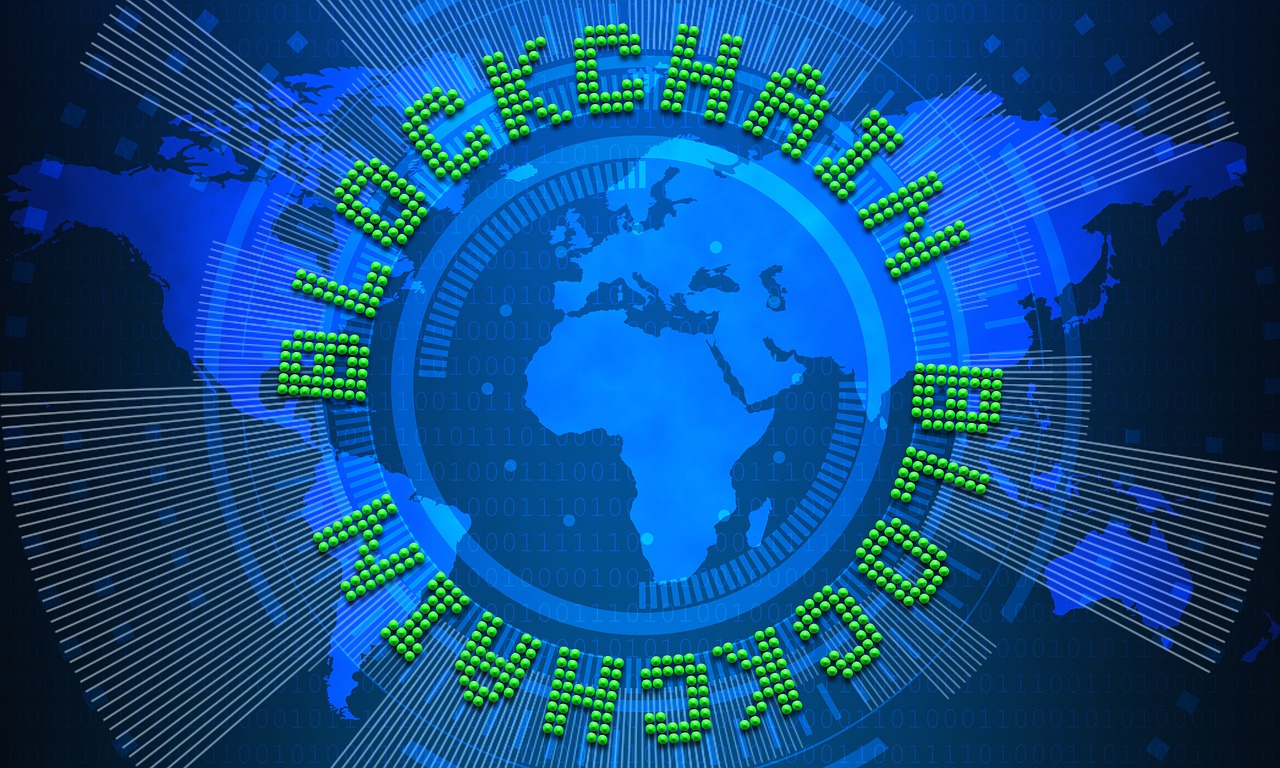Why Government Blockchain Is Getting Top Tech Companies Excited
The cryptocurrency industry has carried most of the plaudits over the last couple of years with the likes of Bitcoin, Ether, Ripple and Bitcoin Cash dominating headlines in the global financial markets.
There have been debates regarding the acceptance of cryptocurrencies in governments with the potential impact of imposing government regulations repeatedly being flagged as a likely drawback to the expansive growth of the crypto market witnessed over the last few years.
Further, lingering questions about criminal activities in the cryptocurrency industry where some players launch projects to defraud unsuspecting investors have also created a cloud of doubt. As such, the chances of cryptocurrencies warming their way into the confines of the government framework are still deemed a far-fetched dream in some countries.

Image via Pixabay
Some players in the industry have also been accused of getting involved in the market in a bid to gain access to undetectable channels of money laundering, which continues to complicate matters for digital currencies ever becoming a mainstay within government systems. However, the blockchain, which is the underlying technology behind bitcoin and other cryptocurrencies is finding a warmer embrace in government institutions and this has triggered the interest of top technology companies.
Just this July, International Business Machines Corp. (IBM) won AUD $1 billion government contract for the development of blockchain and other digital initiatives in Australia. The contract will see IBM engage in the development of quantum computing, blockchain and artificial intelligence projects in the country over a 5-year period, which is expected to strengthen Australia’s position in the digital transformation and automation market.
The disruptive force of the distributed ledger technology is finally finding a foothold in the more centralized public sector as governments look to improve operational efficiencies and security measures in the public domain.
Among the most interesting areas that government blockchain could come in handy include the supply chain. At times, it can take several days or weeks to complete a signing off, of a government project with a third party for the supply of goods or services. The bureaucratic process can also get messed up leading to numerous errors while in some cases, those with sinister objectives can easily take advantage of such loopholes to defraud the government.
Furthermore, governments are also looking to improve the quality of products supplied to the consumer market by utilizing the immutable architecture of blockchain technology. For instance, in July 2018, the UK's Food Standards Agency (FSA) completed a pilot project using blockchain to track the distribution of meat in a cattle slaughterhouse. The FSA said that this pilot project was the first time blockchain technology had been used to ensure compliance in the food sector.
Other government agencies including land registry and financial services have also launched projects to gauge how effective the technology can be in improving the standards goods and services provided in the public sector. In Singapore, Japan, Australia, and the U.S., blockchain has also been tested in the stock market with some countries already running pilot projects for a blockchain-based stock exchange platform. In the UAE, Dubai has made an ambitious plan to become the first city where all transactions are done via a blockchain network by the year 2020.
The level of interest in blockchain technology shown by governments has created an insatiable demand in the market with several technology companies looking to pounce. While small startups are the most popular in developing blockchain applications, large tech players like IBM, Microsoft Corporation (MSFT) Oracle Corporation (ORCL), American Express Company (AXP), Facebook Inc. (FB) and Alibaba Group Holding Ltd (BABA) among others have also either invested or are exploring ways to invest.
IBM is the largest player that is currently working on multiple projects with governments, including the U.S. government, the Australian government and the Chinese government where together with Walmart (WMT) have launched the Blockchain Food Safety Alliance in the Asian country.
One major benefit of working with governments on projects whose underlying technology still faces notable regulatory obstacles is that with the government as a client, you are given enough time to develop your product. Furthermore, your products are likely to gain penetration in the market quicker because of the ‘implied’ government approval license once they are ready to launch.
Conclusion
A few years ago, very few saw government blockchain as a realistic concept, but now, it is one of the most promising marketplaces to disrupt. Of course, it won’t be easy because of the already centralized model of the public sector, but most of the government operations can be easily decentralized, streamlined and made more secure using a blockchain infrastructure. That’s why some of the world’s tech companies are eager to capitalize as they seek to grow their market shares in the blockchain and crypto markets.
Disclaimer: The material appearing on this article is based on data and information from sources I believe to be accurate and reliable. However, the material is not guaranteed as to accuracy nor ...
more



Good read.